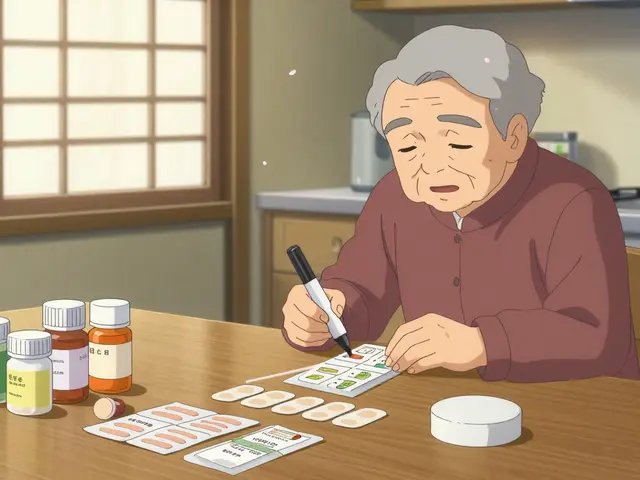Drug Tolerance: What It Is, Why It Happens, and How to Handle It
When your body stops responding to a medication the way it used to, you’re dealing with drug tolerance, a reduced response to a medication after repeated use, requiring higher doses to get the same effect. Also known as medication tolerance, it’s not just about addiction—it’s a biological shift that happens with everything from painkillers to sleep aids. If you’ve ever taken a pill that worked great at first but now feels like it’s doing nothing, you’ve felt drug tolerance in action.
This isn’t rare. It shows up in people taking opioids, pain medications like oxycodone or hydrocodone that trigger tolerance quickly due to how they bind to brain receptors, in those using benzodiazepines, anti-anxiety drugs like alprazolam that cause tolerance to sedation and muscle relaxation, and even with common SSRIs, antidepressants like sertraline or fluoxetine where some users report diminished mood effects over months. It’s not a failure—it’s your nervous system adapting. Your cells downregulate receptors, your liver gets better at breaking the drug down, or your brain rewires its response. That’s why your doctor might switch you from one painkiller to another, or why your sleep aid stops working after a few weeks.
Drug tolerance doesn’t always mean you need more. Sometimes, it means you need a break. A short pause—called a drug holiday—can reset your system. Other times, it points to cross tolerance, when tolerance to one drug reduces response to another in the same class, like between alcohol and benzodiazepines. That’s why switching from one stimulant to another might not help if you’ve built up tolerance to both. And if you stop suddenly, you might face withdrawal symptoms, physical or mental reactions like anxiety, tremors, or insomnia that happen when the drug is removed. That’s why tapering under medical supervision matters more than just quitting cold turkey.
What you’ll find in the posts below isn’t just a list of drugs—it’s a real look at how tolerance plays out in everyday treatments. From how Mirabegron’s effects change over time to why Clarinex stops working for some allergy sufferers, these articles break down what’s happening in your body, not just what’s on the label. You’ll see how people manage tolerance with alternatives, timing, and lifestyle changes—not just higher doses. There’s no magic fix, but there are smart, science-backed ways to stay in control.
Why Medication Side Effects Fade: Understanding Tolerance Development
Learn why certain medication side effects fade over time, the mechanisms behind drug tolerance, and how clinicians manage differential tolerance for better outcomes.






